
Bridging the Worlds: The Confluence of Indigenous Wisdom and Psychedelic Science
This hybrid conference will be held on Thursday, April 18, 2024 from 8:30am - 5:00pm MST (6:30 AM AKT | 7:30 AM PT | 9:30 AM CT | 10:30 AM ET) in person and via Zoom. Registration will begin at 7:30am MST.
Location: Nighthorse Campbell Native Health Building, Shore Family Forum, 13055 E. 17th Avenue, Aurora, CO 80045.
Psychedelic therapy has been practiced by disparate communities in remote and modern history including indigenous communities, ethno-spiritual groups, medical academics, mental health practitioners, and other healthcare professionals. Recent legislative efforts have moved the use of psychedelics out of subcultural use and into the mainstream for public availability. There exists an exciting opportunity to learn from each other, but also an equal opportunity for conflict and disengagement. Our conference aims to collect expertise from across the global spectrum to create confluence from all tributaries and run together towards a better future for all.
Session Information
Welcome to the Centers for American Indian & Alaska Native Health with Spero Manson, PhD
Invocation with Sofia Chavez, DNM
Bridging the Worlds: Promising Approaches with Ed MacPhee, MD
Join Dr. Edward MacPhee as he welcomes attendees to the Bridging the Worlds conference and outlines the day’s events.
Psychedelic Medicine in Historical Context: Honoring Sacred Traditions in Modern Practice with Shannon Hughes, PhD
The resurgence of plant and psychedelic medicines for alleviating physical and mental health challenges is accompanied by centuries of traditional sacred uses, political struggles, and the perseverance of medicine guides in preserving their wisdom. As we apply these medicines to our modern challenges, we must remember to connect with their history and ancestry and open ourselves to honoring deep rooted wisdom and sacred traditions. In this session, we highlight how communities have engaged with sacred plant medicines for generations and how we might understand our roles for responsibly and effectively bridging worlds of practice.
Break
Psychedelic Experiences: An Exploration of the Theory and the Science with Ed MacPhee, MD
While Psychedelic-Assisted Psychotherapy is considered by many to be “the next big thing” in psychotherapy, it is critical to understand that psychedelic experiences have a long, rich history and are but one of many types of spiritual experiences. This plenary will discuss the current understanding of the science and clinical applications of this approach to healing and put them into the broader cultural and historical context of spiritual experiences.
Reflections with Daniel “Kuthoomi” Castro
Sara Lewis and Dori Lewis yielded their Optimizing Client Experiences session to provide more time for reflections from the indigenous community.
Lunch
Ceremonial Singing & Drumming with Joseph Lam
Coloring within the Lines: Legal and Regulatory Considerations with Jon Treem, MD & Natasia Poinsatte, MA
A discussion of the key elements of Colorado state policy as it pertains to the practice of psychedelic therapy, and updates on national and non-Colorado state efforts at psychedelic policy reform.
Bridging Models of Community Care in the Psychedelic Landscape with Sofia Chavez, DNM, Belinda Eriacho, MPH, MT & Ingrid Keating, LAc, OTR/L, MSOM
Moderator: Sara Lewis, LCSW, PhD
This session is a discussion and discernment that bridge models of community care across plant medicine traditions and psychedelic medicine scopes of practice. The essence and aim is to promote respectful and inclusive care delivery models within the psychedelic landscape. Panelists come from diverse medicine and therapeutic traditions, and this session seeks to illuminate bridges as well as challenges in the unfolding psychedelic care landscape.
Break
Client Stories and Reflections
Moderator: Kent Peterson, MD
Sacred Traditions: Expanding the Clinical Gaze with Sofia Chavez, DNM, Shannon Hughes, PhD, Selina Keryte, MPH, Ana Medina & Leroy Nez
Moderator: Kylie House, MD
Healing traditions develop within the context of culture in which people share a general set of assumptions and beliefs regarding their reality. This includes the nature of illness and health. So, what happens when cultures that hold different realities meet, as they have in the use of sacred medicines? A renegotiation of reality needs to take place. In this panel discussion, we explore this renegotiation from the Indigenous and Western world perspectives, and we take note of where Western clinical practice may need to adapt their reality to better reflect the observations taking place while engaging with these types of medicines.
Reflections with Wesley Black Elk, Public Speaker
Closing Remarks with Jon Treem, MD
Speaker Bio
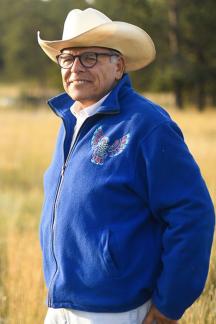
Spero Manson (Little Shell Chippewa) is a distinguished professor of public health and psychiatry, directs the Centers for American Indian & Alaska Native Health, and occupies the Colorado Trust Chair in American Indian Health within the Colorado School of Public Health at the University of Colorado Anschutz Medical Campus. His programs include 10 national centers which pursue research, program development, training, and collaboration with 225 Native rural, reservation, urban and vicommunities across the country.
Dr. Manson has acquired over $293 million in sponsored research to support this work and published 280+ articles on the assessment, epidemiology, treatment, and prevention of physical, alcohol, drug, and mental health problems of Native people. Dr. Manson is widely acknowledged as one of the nation’s leading authorities in regard to Indian and Native health.
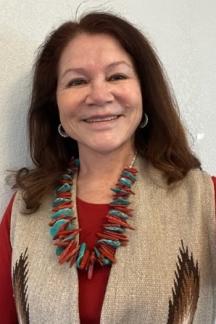
Sofia Chavez is a Board-Certified Doctor of Natural Medicine and Master Herbalist through the American Naturopathic Medical Association and holds a Doctorate in Ministry/Spiritual Medicine. She created and trademarked a unique model of Indigenous Reiki and is a member of The International Collaboration of Indigenous Healers, Curanderos, Sanadores y Shamans which originated at the Univ. of Morelos in Mexico. Her dissertation on Traditional Mexican Modalities was published by the Journal of The American Naturopathic Medical Association and selected for presentation at the 2017 Indigenous Mental Health Conference. Her focus is Community Health and addressing health disparities and access to care for underserved populations. She was appointed by Gov. Jared Polis and senate confirmed to serve on the Colorado Natural Medicine Board 2023-2025.
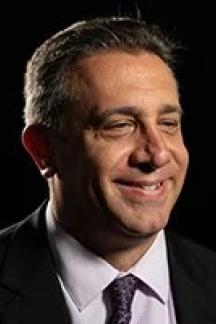
Edward MacPhee is an Assoc. Clinical Professor of Psychiatry at the Univ. of Colorado School of Medicine. He works both in inpatient and outpatient psychiatric settings and has interests in working with patients with trauma and incorporating psychotherapy into psychiatric sessions. He is the Medical Director for the CU Medicine Outpatient Psychiatry Clinic, where he works with trainees of a wide range of disciplines. He is also the UCHealth Psychiatry Clinical Director and oversees the hospital-based parts of the Adult Division of the Dept. of Psychiatry.
Dr. MacPhee is also very interested in philosophy and considers himself to be a Metamodernist. As a result, he has a strong interest in spiritual experiences, including those associated with psychedelics, and how they can be best understood and used in clinical settings.
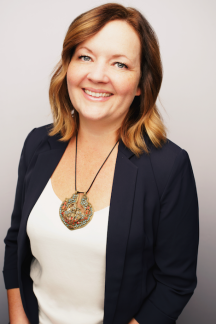
Shannon Hughes is an Assoc. Professor in Social Work at Colorado State Univ. She teaches, consults, and conducts research on psychoactive drugs and medicines, and is a leading advocate for their use in mental health treatment. Dr. Hughes has established the Alternatives for Mental Health and Healing Research Lab at CSU, secured multiple grants that seek to impact behavioral health systems, and has developed and delivered educational trainings about psychedelics and ethical psychopharmacology. She is a founding member of The Nowak Society, a non-profit providing education around psychedelics and drug policy reform.
In her private practice, she blends spirituality, life coaching and psycho-spiritual psychedelic experiences. Dr Hughes has served on the Larimer Co. Behavioral Health Technical Advisory Committee, the review board for the Community Mental Health Journal, and consults on behavioral health and psychedelic advocacy in the legislative and policy arenas.
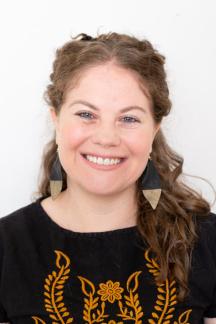
Sara Lewis is Assoc. Professor and Director of Training and Research at Naropa University's Center for Psychedelic Studies. She earned her master's degrees from the Univ. of Chicago and her PhD from Columbia University at the Mailman School of Public Health in medical anthropology. Her book Spacious Minds: Trauma and Resilience in Tibetan Buddhism (Cornell Univ. Press, 2019) is based on fieldwork she conducted as a Fulbright scholar and investigates how Buddhist concepts of mind shape traumatic memory and pathways to resilience. Sara has published research on ayahuasca and spiritual emergencies and specializes in intergenerational trauma and healing. She is a MAPS PBC Level 1 Consultant and provides ketamine-assisted psychotherapy in her private practice in Boulder, CO.
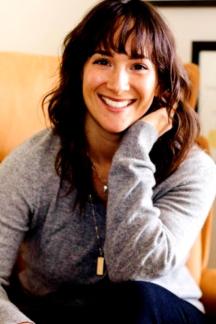
Dori Lewis is a co-founder of Elemental Psychedelics and the owner-operator of Reflective Healing, a practice that specializes in psychedelic therapy using ketamine, integration therapy, transpersonal psychotherapy, and clinical supervision. She has stewarded nearly 100 ketamine therapy sessions and countless individual and group ceremonies. She is in an apprenticeship with a mushroom medicine elder from the Zapotec lineage in Oaxaca, Mexico. She has received shamanic journey training from Sandra Ingerman and practices this style of altered states work in her clinical practice. Her clinical background includes having earned two master's degrees from Teachers College, Columbia University, in counseling education and psychology.
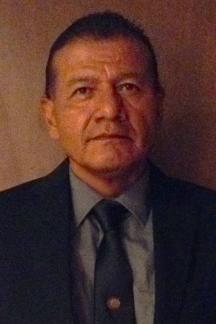
Wesley Black Elk was born in Nebraska and raised on both the Pine Ridge and Rosebud Indian Reservations in South Dakota. He entered the U.S. Marine Corps after high school, and after completing the military service, he returned to the Rosebud Indian Reservation and studied at Sinte Gleska (Spotted Tail) University. In the 1980’s, he started public speaking on the Lakota Cultural Way of Life and continues to present throughout the U.S. at universities and schools and within the public and private sectors. In 1990’s, he was employed by the Nevada Department of Corrections and later the Minnesota Department of Corrections. After 20 years of service in corrections, he retired.
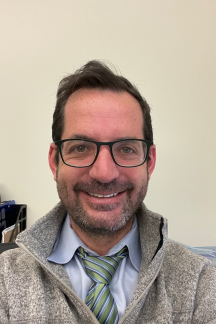
Jon Treem is the Medical Director for Palliative Care at Mid-Atlantic Permanente Medical Group. Prior to this, and in the very recent past, he was the lead physician of the University of Colorado Palliative Care Clinic where he directed and organized clinic operations and was responsible for the administration of outpatient clinical services. He is also the founder and director of Psychedelic Public Policy Partnership – an organization tasked with providing unbiased, empiric, and non-partisan healthcare guidance to lawmakers and legislatures considering psychedelic legalization frameworks. When he’s not at work, his chief hobbies are drinking coffee, toddler wrangling, contemplating existence, and drinking coffee again. Usually in that order.
Natasia Poinsatte is the Colorado State Director of the Healing Advocacy Fund, a nonprofit that works to expand and protect safe, affordable, state regulated access to psychedelic healing for all who need it. Tasia helped guide the passage of Colorado’s Natural Medicine Health Act, as Research Director at the Denver consulting firm RBI Strategies. She has conducted research and advised strategy for successful campaigns in Colorado, across the US, and internationally. Prior to joining RBI, Tasia worked across the public, private and nonprofit sectors in the US, Chile, and Ghana. She holds an MA in International Studies from the University of Denver Josef Korbel School.
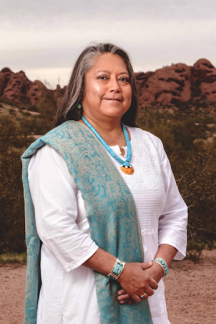
Belinda Eriacho is of Dine’ (Navajo) and A:shiwi (Zuni) descent. Her maternal clan is One-Who-Walks-Around and she was born for the Zuni Pueblo people. Her maternal and paternal grandparents are from the Black Sheep and Zuni clans respectively. She is the wisdom carrier, healer, and founder of Kaalogii LLC and an international speaker on topics impacting Native American communities in the U.S. Belinda holds degrees in Health Sciences, Technology, and Public Health, has trained in MAPS MDMA People of Color, Eye Desensitization and Reprocessing Therapy and Ketamine Assisted-Therapy, and is a co-foundering board member for the Church of the Eagle and the Condor. She is a contributing author to How Psychedelics Can Help Save the World: Visionary & Indigenous Voices Speak Out (Stephen Grey, ed.) and Psychedelic Justice: Toward a Diverse and Equitable Psychedelic Culture, and is the lead author of several articles that are available on charuna.net.
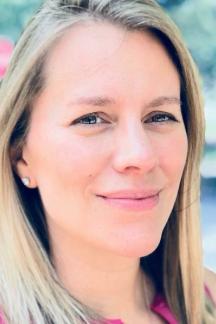
Ingrid Keating, L.Ac., OTR/L, FABAA holds a B.S. in Occupational Therapy and a combined M.S. in Chinese Medicine / B.S. in Nutrition. She is NCCAOM certified, a licensed Acupuncturist, Chinese Herbalist, Occupational therapist, WATSU Practitioner, and a Fellow / Instructor of Equine Science with the American Board of Animal Acupuncture. She co-authored The Heart of WATSU Therapeutic Applications in Clinical Practice and integrates over 23 years of clinical experience in Rehabilitative Medicine, Chinese Medicine, fertility, trauma, and non-ordinary states of consciousness in her private and team practices. She completed MAPS MDMA-Assisted Therapy training and a postgrad certificate in Psychedelic-Assisted Therapy at Naropa. She will complete her Doctor of Acupuncture and Chinese Medicine focused on Integrative Medicine and Psychedelic-Assisted Therapy in Spring 2024.
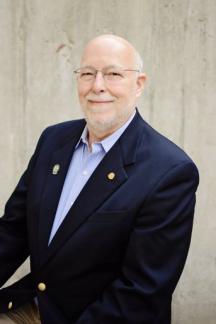
Kent Peterson is a leader in preventive, occupational and environmental medicine, mind-body health and wellness. He serves as CMO for Examinetics which tests over a million workers annually to improve their health, and has designed health programs for over a hundred corporations, universities, and professional societies. Previously, Dr. Peterson worked at IBM and American Standard, was Executive V.P. of the American College of Preventive Medicine, president of the American College of Occupational and Environmental Medicine, and Assoc. Professor at NYU. He has authored/edited 12 books and over 350 chapters, articles, and scientific presentations.
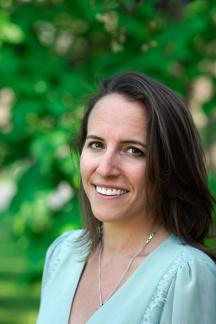
Kylie House has been swimming in the dualities of traditional and nontraditional healing methods since adolescence. She sees her role on earth as a student of healing, and when she feels like she has figured enough out, she likes to share her knowledge. Via the Western vantage, she acquired a medical degree and training as a psychiatrist, and has experience as a certified MDMA and ketamine therapist. She has acted as a Sub-Investigator for a phase 2 trial on LSD for generalized anxiety disorder and will be a Principal Investigator of a 5meo-DMT study for treatment resistant depression. As important in her education, is her relationship with her uncle and Lakota medicine man, Wesley Black Elk. She takes his wisdom to heart – healing is healing, no matter how one comes across it.
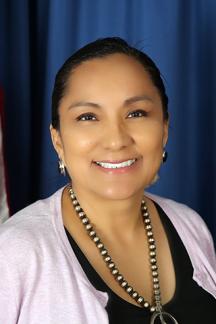
Selina Keryte is a member of the Navajo Nation and is a health science policy analyst in THRO. She uses her extensive experience serving American Indians and Alaska Natives to coordinate work with the NIH Tribal Advisory Committee and develop cultural awareness trainings for NIH staff and extramural researchers. Prior to joining NIH in 2020, Ms. Keryte was the national lead for the Domestic Violence Prevention Program at the Indian Health Service and led efforts to strengthen capacity among the 12 nationally recognized Tribal Epidemiology Centers. She has a M.P.H. from the University of New Mexico.
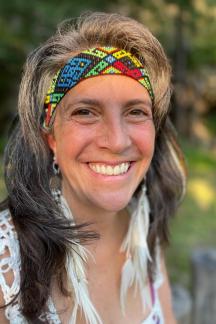
Ana Medina’s mission is to help people remember who they are. Her spiritual path started in her 20’s after she moved from Mexico to the U.S. to study music. Her mission became clear when plant teachers of the world summoned her to give her gift of service to the community in a deeper way. Her education spans modalities. She is a certified Life Coach and trained in Reiki, Sound Healing, Pranic Healing, Shadow Work, Quantum Healing, Ho’oponopono and Psych-K. Ana weaves decades of experiential education and curriculum development with the teachings of plant and earth allies to co-create The New Paradigm Mystery School. Within this context she guides participants toward reconnecting to their ancestral roots and remembering their true calling.
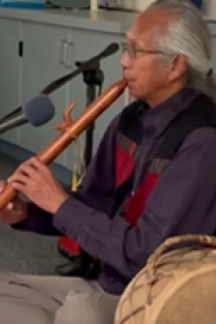
Joseph Medicine Robe has been assisting traditional medicine elders and spiritual teachers for over 45 years, in addition to working with at-risk youth and with families and individuals from all walks of life. The healing qualities of sound through sacred chants, drumming and traditional Native flute reaches beyond words and the intellectual mind, thereby touching the core essence of our being, our soul, and our collective human experience. The power of sound vibration/frequency, music, prayer, and sacred songs have the capacity to open our hearts and our awareness, and to further our healing and transformation.
Sponsors for this event:


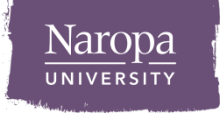
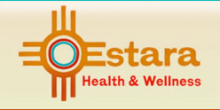
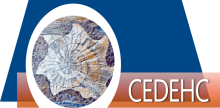
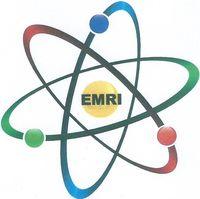



Individual Donors
- Dr. Leonard and Judy Wisneski
- The E. DesMarais Charitable Fund
- Bernadette Southwick
- Anonymous
Lecture Accessibility Statement
The presentations and presentation materials available on this page have not, to our knowledge, been assessed with WCAG 2.1 level AA. Not assessed means that the content has not been evaluated or the evaluation results are not available. These resources are being presented in the original manner the Strauss Library received them from the presenters at the time the lectures took place. We cannot guarantee this content meets accessibility standards.
The Web Content Accessibility Guidelines (WCAG) defines requirements for designers and developers to improve accessibility for people with disabilities. It defines three levels of conformance: Level A, Level AA, and Level AAA. The Strauss Library utilizes WCAG 2.1 Level AA as a target for meeting commitments related to accessibility.
